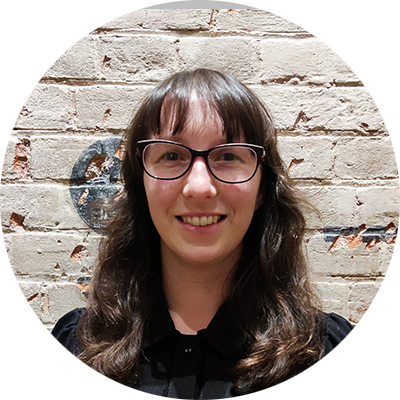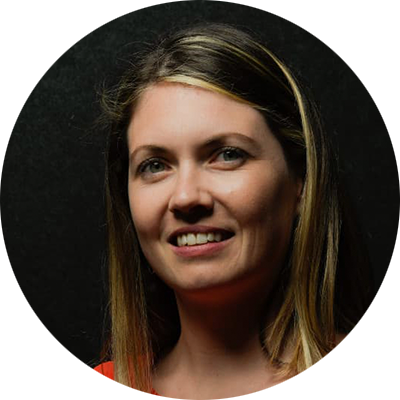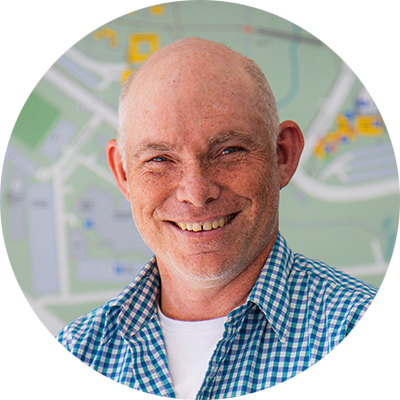Bachelor of
Geospatial Information Systems
Entry requirements
Key information
VIEWING DOMESTIC
VIEWING INTERNATIONAL
Entry requirements
Key information
overall
overall
Note: Part-time equivalent study options are not available for international students.
Learn GIS, drones, and earth observation science
Geospatial Information Systems (GIS) is a unique degree that blends science, technology, and exploration.
You’ll learn how to capture and analyse geographic data using drones, satellites, and mapping software, then apply it to real-world challenges like climate change, urban growth, and defence planning.
GIS is everywhere - from disaster response to agriculture to smart cities - and it’s growing fast. With hands-on projects and fieldwork, you’ll graduate ready to use maps, data, and innovation to make a difference.
No.1 in SA
in Sciences for learning resources, skills development, student support, teaching quality and graduate salary
The Good Universities Guide 2026 (undergraduate), public SA-founded universities only
Top 400 in the world for Life Sciences
The Times Higher Education Subject Rankings 2025
Ranked #7 in Australia in Science & Mathematics
for learner engagement
The Good Universities Guide 2025 (undergraduate)
Spatial data powers the industries of the future - GIS careers are cool, important, and growing fast!
GIS is not just a job - it’s a career where maps, technology, and discovery intersect. With GIS skills, you can work outdoors or in labs, design apps, analyse satellite data, or help solve global challenges. The geospatial jobs market is growing, new roles are emerging every year, but the skills gap is still getting bigger - will you help fill it?
Salary
$95K
typical salary in Australia
GIS Analyst
Turn raw data into meaningful maps and insights that guide real-world decisions. They work on projects like modelling bushfire risk, mapping biodiversity, or designing transport routes. Their tools include satellite images, drones, and spatial databases, making the role both technical and creative.
In Australia, GIS Analysts work across government, defence, environment, and private industry. The role provides pathways to senior analyst, spatial consultant, or project leadership positions.
Geospatial Data Scientist
Combine coding, artificial intelligence, and GIS to make sense of massive datasets.
They might analyse flood patterns, predict crop yields, or model urban growth. The role sits at the frontier of data science, geography, and computer science.
With demand for data-driven decision-making on the rise, these specialists are valued across sectors from defence to agriculture. Many move into roles as spatial AI leaders or innovation consultants.
Salary
$120K
typical salary in Australia
Sources: Seek, 2025 | Glassdoor, 2025
Earth Observation Specialist
Uses satellite and drone imagery to monitor landscapes, agriculture, and natural disasters. Supports government, defence, and environmental management agencies.
Catographer
Designs and produces maps that communicate complex spatial information in clear and accessible ways. Often works in government, research, or private mapping firms.
Environmental Consultant
Applies geospatial data to assess and manage environmental issues, advising businesses and government on sustainability, land use, and compliance.
Transport and Infrastructure Planner
Uses GIS to design and optimise transport systems and infrastructure projects, ensuring efficiency and sustainability in growing cities.
What will you study to start your career in GIS?
Learn GIS, drones, and satellite data while choosing a minor to shape your future career. With projects and fieldwork built in, you’ll graduate with the skills to map and model the world around you.
- Year 1
- Year 2
- Year 3
In your first year, you'll build your geospatial foundations with core science and GIS tools.
Year 1 - Core topics
Your first year might include the following topics. For exact topic information, visit the course Handbook.
- Geospatial Information Systems
- Earth Observation Fundamentals
- Geospatial Field Data Acquisition
- Mathematics
- Algebra and Functions
- Data Science
- Physics for Health Sciences
- Communicating STEM
In your second year, you'll advance into programming, location intelligence, and drones.
Year 2 - Core topics
Your second year might include the following topics. For exact topic information, visit the course Handbook.
- Database Modelling and Information Management
- Engineering Programming
- Drone Observation
- Location Intelligence
- Coordinate Systems and Satellite Positioning
- Science Applied
- Start a Minor to specialise. Minors available include: Artificial Intelligence, Archaeology, Biodiversity and Conservation, Climate Change, Coding, Coasts and Oceans, Environmental Restoration, Marine Biology, Palaeontology, and Plant Science.
In your third year, you'll specialise with advanced analysis and a major GIS project.
Year 3 - Core topics
Your third year might include the following topics. For exact topic information, visit the course Handbook.
- Geospatial Information Systems Project
- Spatial Information Management
- Advanced Spatial Analysis
- Advanced Earth Observation
- Science Connect
- Remaining 9 units from chosen minor. Minors available include: Artificial Intelligence, Archaeology, Biodiversity and Conservation, Climate Change, Coding, Coasts and Oceans, Environmental Restoration, Marine Biology, Palaeontology, and Plant Science.
No.1 in SA
in Sciences for learning resources, skills development, student support, teaching quality and graduate salary
The Good Universities Guide 2026 (undergraduate), public SA-founded universities only
Top 400 in the world for Life Sciences
The Times Higher Education Subject Rankings 2025
Ranked #7 in Australia in Science & Mathematics
for learner engagement
The Good Universities Guide 2025 (undergraduate)
Discover South Australia.
Where world-class education meets laid-back coastal living. With pristine beaches, acclaimed wineries, and vibrant festivals at your doorstep, South Australia offers an unmatched student experience.
Photo credit: SATC
Get inspired.
Discover more about Flinders University’s Bachelor of Geospatial Information Systems.
“GIS can be applied to anything, because everything has a location and is connected. GIS knowledge is incorporated into many industries and utilised in many different ways... The things that Robert Kean taught I now use every single day.”

Ellen Carter
Bachelor of Geospatial Information Systems
Need support?
International Student Services (ISS) is the first point of contact for international student support. The university also offers everything from cultural, health, and wellbeing services, to academic support.
Campus tours
Take a virtual tour of our campuses, guided by your fellow international students.
FUSA
Flinders University Student Association (FUSA) is the heart of the Flinders Experience. FUSA is where you'll find out about events, club memberships, and extracurricular activities.
Accommodation.
Adelaide has many accommodation options for international students. You can choose to live on campus, at our city accommodation provider The Switch, or in rental accommodation.
Flinders offers a vibrant, fun, supportive uni experience you’ll remember for a lifetime.
Need support?
From cultural, health and wellbeing services, to study and financial support, enrolment advice and more, we’re here to help.
Student clubs
Flinders University Student Association (FUSA) is the heart of the Flinders Experience. FUSA is where you’ll find out about events, club memberships and extracurricular activities.
Campus facilities
Flinders’ campuses are hubs of activity, with retail and food outlets, library spaces, study and chill spaces and more.
Learn from the experts.
Our incredible teaching and professional staff are experts in their fields and well-connected to the industry.

Senior Lecturer and Teaching Specialist
Dr Tessa Lane
Tessa is a geoscientist turned GIS specialist whose work bridges earth systems, spatial data and environmental insight. She holds a PhD in coastal and fluvial geomorphology from the University of Adelaide and a first class honours in Geoscience.
At Flinders, she works in GIS and spatial modelling, coordinating both the Bachelor and Master of Geospatial Information Systems programs. Her teaching and research topics include modelling in space and time, geostatistics, airborne and ground-based data capture, and GIS applications across disciplines.
Tessa is a member of the Geospatial Council of Australia and contributes to the College’s STEM Academy. She is passionate about using spatial tools to understand landscapes, manage change, and empower students to make sense of our dynamic world.

Senior Lecturer and Teaching Specialist
Graham Walker
Graham is a registered surveyor and geospatial specialist committed to bringing real‑world mapping and spatial thinking into education. With a BEng (Honours) in Civil Engineering and an MSc in Geodetic Surveying, he spent more than 18 years working as a surveyor in the UK and Australia before joining Flinders as a lecturer.
As a Senior Lecturer and geospatial advocate, Graham champions the use of mapping, positioning and spatial data to make sense of our world. He is Chair (SA) for Geospatial Council of Australia and has been recognised as “Professional of the Year” in South Australia’s Geospatial Excellence Awards.
His professional path blends surveying precision with teaching, and he is passionate about supporting students who want to build careers in geospatial science, surveying, and spatial technologies.

Technical Field Officer
Neil Brown
Neil is the backbone of field work and technical support for the surveying and geospatial teams at Flinders. In his role as Technical Field Officer (Surveying), he ensures that instrumentation, spatial data collection, field campaigns and lab‑to‑field operations run smoothly. 
With deep hands‑on experience in surveying equipment, measurement techniques and field logistics, Neil helps students and researchers turn spatial theory into practice. Though not a traditional academic lecturer, his on‑ground support and technical expertise are crucial to realising hands‑on projects, field exercises and mapping initiatives.
How to apply.
We know not everyone begins uni the same way, so we offer a variety of pathways into Flinders.
Use the dropdown to tell us a bit about you.
Alternative pathways
UniTEST
If you’re in Year 12, taking the free uniTEST can help boost your chances of getting into Flinders.
Research Project B Pathway
Strong results in your Research Project B subject along with your Year 12 results can be considered for entry.
Year 12 Grades Entry
By using three of your best Year 12 grades, you can also gain a place in your course of choice.
School Recommendation Program
Your school’s recommendation about your academic performance may be considered as part of your admission.
If you started uni but didn't finish, you may be able to gain entry into Flinders with a higher education transfer.
Higher education transfer
If you’re studying at another university, you may be able to transfer to Flinders based on your Yr 12 results, current GPA or other factors.
If you've had TAFE or VET training, you may be able to continue your study with Flinders.
TAFElink
Even if you didn’t finish high school (Year 12), you may be able to study at Flinders through your TAFE/VET qualification.
Dual offer pathways
You may be able to complete a TAFE SA course and have guaranteed entry into Flinders.
Credit transfer
The TAFE/VET stud you’ve already done may be able to be used as credit towards a Flinders’ course.
No ATAR? No worries. If you've got work or life experience, there are pathways into Flinders.
Flinders Foundation Studies
The Foundation Studies Program is free and guarantees entry to a range of degrees.
Skills for Tertiary Admissions Test (STAT)
The STAT is a 2-hour multiple choice test that assesses your abilities.
Year 12 qualifications
If you completed Year 12 more than two years ago you can still use your results to apply.
Concerned about your ATAR? If it doesn't meet the course requirement, or if you don't receive one, we offer alternative pathways to admission. Contact us to discuss your options—we're here to help.
- Entry requirements
- Application options
If you don’t meet our English language entry requirements and need to improve your English language proficiency, you can do so through Flinders University Academy – or our approved English Language Instruction Course for Overseas Students (ELICOS) providers.
This means that you can attend the required English language tuition at approved ELICOS providers and gain direct entry into university without an IELTS or TOEFL test.
If you don’t meet our academic entry requirements, you can still gain entry to Flinders University through Flinders University Academy. With a range of diplomas, foundation and English language courses, students can find a direct pathway into the destination degree of their choice.
How to apply
Select your course.
Check entry requirements.
Check your eligibility for credit.
Obtain certified documents.
Submit your application and documents.
Application options.
Apply online
Follow up our step-by-step guide to help you with your application to study at Flinders.
Find an agent
Our registered education agents around the world understand the university system and will guide you through the application process.
Contact us
Get in touch with our team to discuss your preferences, career options, pathways, and course and entry requirements. We are here to ensure you have everything you need to choose the right degree for you.
Don't meet academic requirements? Don't worry. We'll help you get there.
Preparatory courses
If you lack required English proficiency, improve through Flinders University Academy or approved ELICOS providers for direct university entry without IELTS/TOEFL tests.
Flinders University Academy
If you do not meet entry requirements for your desired degree, Flinders University Academy will provide you with a direct pathway into the destination degree of your choice.
Frequently asked questions.
Over the years, many questions have been asked by students before. For the quickest answers view our frequently asked questions or browse the full list @ Ask Flinders.
GIS is unique — it blends computing, mapping, and environmental science. You’ll work with drones, satellites, and data while solving real-world problems.
Yes. The global GIS market is growing due to the skills gap in STEM, and demand for skilled GIS graduates is strong in Australia and internationally. Almost every sector has recognised the importance of geospatial data, which is applied to business, financial, societal and defence purposes.
GIS careers are diverse. Some days you’ll be coding or creating maps, others you might be in the field collecting drone or GPS data.
It helps! GIS builds on the power of maps, but takes them further by making them interactive, data-driven, and dynamic.
Yes. GIS often involves fieldwork - from urban surveys to remote environmental monitoring.
In government, defence, environmental management, mining, agriculture, transport, and urban planning. Anywhere location data matters, GIS is there.
- Applications are completed via SATAC
- Visit: satac.edu.au
The table below shows ATAR and Selection Rank data for students offered a place wholly or partly on the basis of ATAR commencing in Semester 1, 2025. It is limited to applicants that have recently completed secondary education (within the last two years). Data may reflect multiple courses available within a suite of courses.
Notes:
<5 – less than 5 ATAR based offers made
N/A – This course uses additional selection criteria and therefore Selection Rank is not published
| ATAR-based offers only across all offer rounds | ATAR - Excluding adjustment factors | Selection Rank - ATAR plus any adjustment factors |
|---|---|---|
| Highest rank to receive an offer | 95.20 | 99.95 |
| Median rank to receive an offer | 76.17 | 80.42 |
| Lowest rank to receive an offer | 57.75 | 61.00 |
The table below gives an indication of the likely peer cohort for new students in this course. It provides data on students who commenced study in this course in Semester 1, 2025 including those admitted through all offer rounds and international students studying in Australia. Applicant background groupings are based on educational background, not basis of admission. Data may reflect multiple courses available within a suite of courses.
Notes:
<5 – the number of students is less than 5
N/P – Not published: the number is hidden to prevent calculation of numbers in cells with less than 5 students
| Applicant background (Semester 1, 2025) | Number of students | Percentage of all students |
|---|---|---|
| Higher education study (includes a bridging or enabling course) | 44 | 37% |
| Vocational education and training (VET) study | 5 | 4% |
| Work and life experience | <5 | <5 |
| Recent secondary education - Admitted solely on the basis of ATAR (regardless of whether this includes the consideration of adjustment factors such as equity or subject bonus points) | 28 | 24% |
| Recent secondary education - Admitted where both ATAR and additional criteria were considered (e.g. portfolio, audition, extra test) | <5 | <5 |
| Recent secondary education - Admitted on the basis of other criteria only and ATAR was not a factor (e.g. special consideration pathways) | 17 | 14% |
| International Students | 18 | 15% |
| All students | 118 | 100% |
Frequently asked questions.
Get in touch with us to discuss your preferences, career options, pathways and course and entry requirements. We are here to ensure you have everything you need to choose the right degree for you.
The type of documents you will need for your international application depends on what course you are applying for and which country you are a citizen of. Course requirements are stated on each course webpage. Examples of documentation you might expect to provide for your international application include a copy of personal identification, academic transcripts or a resume.
Once you have received your Confirmation of Enrolment (CoE) letter from Flinders University, you should apply for your visa as soon as possible as visa processing times can vary. You will receive your CoE letter after you have applied to study at Flinders, accepted your offer and paid the semester tuition fee.
No. Part-time study is currently not available for international students due to visa conditions.
No. Online study is currently not available for international students due to visa conditions.
If you don’t meet our English language or academic entry requirements, you can still gain entry to Flinders University through our on-campus pathway provider Flinders University Academy. Alternatively, you can improve your English language proficiency through our approved English Language Instruction Course for Overseas Students (ELICOS) providers.
You can apply to study as an international student directly through Flinders University or an authorised agent in your country.
If you are from one of the countries listed, you are required to apply via an education agent. If you reside onshore in Australia, you will not require an agent even if you are from the countries listed above.
Yes. As a student visa (subclass 500) holder, you and your dependents (family members) can work up to 48 hours a fortnight when your course of study is in session. If you have started a master degree by research or doctoral degree, this rule does not apply to you and working hours are not restricted.
Our dedicated International Student Services (ISS) team provide a range of programs supporting your enrolment, study and social life, as well as a referral service to facilities on campus and within the local community.
![]()
Sturt Rd, Bedford Park
South Australia 5042
South Australia | Northern Territory
Global | Online
CRICOS Provider: 00114A TEQSA Provider ID: PRV12097 TEQSA category: Australian University








